Network of projects
To achieve its objectives, BlueMissionMed collaborates at different levels with the following projects:

Blueprint for Atlantic-Arctic Agora on cross-sectoral cooperation for restoration of marine and coastal ecosystems and increased climate resilience through transformative innovation (IA)
The EU Mission "Restore our Ocean and Waters by 2030" (Mission Ocean) aims to protect and restore the health of our ocean and waters. The EU-funded A-AAgora project will demonstrate via technological, social, logistic and economic innovation actions the reduction of pressures in coastal areas, through the application of ecosystem-based management and nature-based solutions to boost resilience to climate change and mitigate its impacts. A-AAgora will carry out demonstration activities in the Atlantic and Arctic basin and co-identify areas and locations where the solutions are replicable. Moreover, it will draw up blueprints and roadmaps to replicate and scale up the ecosystem and biodiversity restoration solutions and actions, contributing to Mission Ocean’s development and the piloting phase of the Atlantic-Arctic basin lighthouse. A-AAgora aims to develop the implementable NbS (Nature based Solutions) through innovative governance structures and technological architecture. It targets to boost resilience to climate change and mitigating its impacts in coastal areas. It identifies synergies by promoting a deliberative process to complement other priority areas within the EC Mission - by setting a Community of Practice and developing a digital knowledge system. It develops NbS at three replicable demonstrators (Demo-PT, Demo-IE, Demo-NO), which can upscaled. The project seeks improved public engagement and enhanced decision-making processes at different political levels based on scientific knowledge and targeted social and economic awareness, using an EBM approach. It builds on the successful implementation of NbS at the Demo’s to which the necessary socio-technological tools will be produced as required for a realistic EBM planning cycle (up to TRL/SRL 7). The Living Lab concept will foster the exchange synergies at multiple scales between researchers and users, decision-makers and local communities, industry and SMEs. A-AAgora will demonstrate that restoration of aquatic ecosystems is possible at a large scale through reduction of pressures, EBM, and effective NbS including blue reforestation to boost coastal resilience to climate change impacts. As well, the A-AAgora will make the most of cross-Mission synergies, by targeting marine ecosystem restoration in coastal communities particularly vulnerable to the risks of sea level rise that urgently need to adapt to ensure their population and infrastructure are safe, climate-proof and weather-resilient. The design of innovative architecture, enabling interoperability with other systems and will also foster a more ‘digital ocean’.

BUILDING A COORDINATION HUB TO SUPPORT THE MISSION IMPLEMENTATION IN THE ATLANTIC AND ARCTIC BASIN (CSA)
BlueMissionAA will be the coordination hub that will support the implementation of the EU Mission Restore our Ocean and Waters by 2030 in the Atlantic and Arctic basins. It will focus on restoration of marine and coastal ecosystems and increased climate resilience. BlueMission AA will have a structuring effect to consolidate and mobilise a wide community of relevant stakeholders and EU citizens towards the achievement of Mission objectives at basin level. It will deliver an effective governance framework aligned with policies, initiatives and actions at national, regional and EU level [WP1], build a well-coordinated monitoring framework to assess the progress of the implementation on an ongoing basis [WP2], provide a wide range catalogue of supporting services [WP3], foster an attractive innovation ecosystem for ecological restoration [WP4], and give the opportunity and empower EU citizens to engage in the preservation and restoration of oceans and waters through participative means [WP5]. Six case studies will be selected across a range of representative restoration approaches to represent restoration approaches (e.g protection, active restoration, sustainable harvesting) to represent existing and proven methodologies from recent and ongoing projects and networks. The case studies will deliver guidelines and recommendations in respect of optimum governance approaches for delivering environmental protection and restoration in marine, freshwater and transitional water systems and scalability for achieving mission objectives. BlueMissionAA will develop two region-specific proposals towards an effective mission lighthouse governance, one for the Atlantic and one for the Arctic.
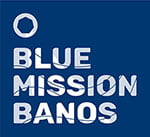
BlueMissionBANOS (CSA)
BlueMissionBANOS is the leading authority for the Baltic and North Sea, coordinating Mission Ocean’s actions in the region. The regional focus of the initiative lies in the circular economy and achieving carbon neutrality in the blue economy. The project aims to facilitate the development of a sustainable, carbon-neutral, and circular blue economy in the Baltic and North Sea by connecting national, regional and transnational actors from policy, industry, science and the public, creating a conducive governance model to innovation.
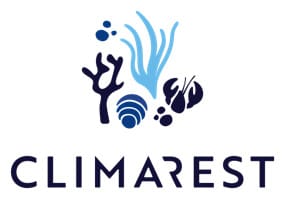
CLIMAREST (RIA)
Marine ecosystems are currently threatened by anthropogenic direct and indirect pressures, and ecosystem stress is expected to increase over the next few decades, leading to a decline in biodiversity, ecosystem functions and services that ultimately affect the climate change tolerance of coastal communities. Ecological restoration is necessary to assist in the recovery of ecosystems that have been degraded or destroyed, however, unlike land restorations, marine restorations are less well-known and less widely implemented along European coastlines. CLIMAREST seeks to develop and demonstrate restoration tools and activities at five demonstration sites across Europe, from Svalbard in the high north to Madeira in the south. The project contributes to the promotion of sustainable restorations by bridging the gap between research and restoration actions with an open tool that will link knowledge and practice. By achieving this, it will provide relevant actors with the tools they need to implement restoration plans, and thus enhance their efforts’ long-term success and replicability. Further, CLIMAREST directly addresses some of the main challenges that have faced the operationalization of marine restoration actions, such as scarcity of data and information sources, low awareness and engagement among stakeholders and the general public, unreliable quantification of costs and benefits and ineffective dissemination of success stories, so as to maximize restoration success.
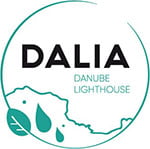
Danube Region Water Lighthouse Action (IA)
DALIA is a lighthouse project focusing on the Danube River basin and fresh water. As an Innovation Action, it supports the new EU Mission Restore our Ocean and Waters by 2030. For the next 3 years, 22 partners across Europe will be providing innovative freshwater solutions and demonstrations in the Danube River basin to improve water ecosystems and facilitate decision-making on water management issues.
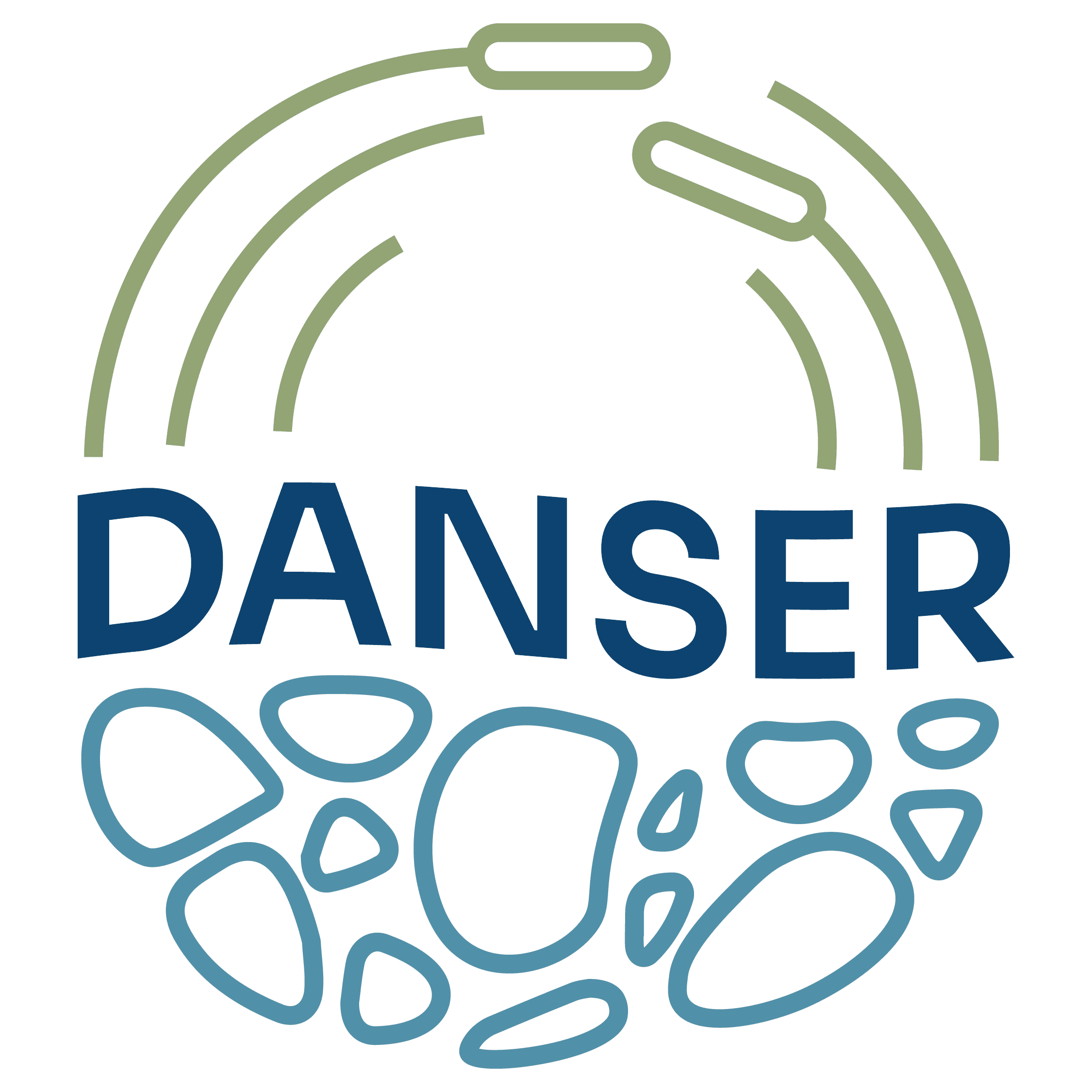
Danube Sediment Restoration: towards deployment and upscaling of sustainable management of the sediments across the Danube catchment basin (IA)
Towards deployment and upscaling of sustainable management of the sediments across the Danube catchment basin The Danube River, one of Europe's most significant rivers, holds immense ecological and socio-economic value. Spanning across multiple countries and diverse landscapes, the Danube River Basin (DRB) plays a crucial role in supporting biodiversity, habitats for aquatic and terrestrial organisms, migration routes and delivering essential ecosystem services such as drinking water supply, climate mitigation, provision of recreation areas and cultural services. However, human activities, incl. flood protection measures, river channelization, sediment excavation, hydropower generation, and land-based practices, have substantially impacted the sediment balance and quality. These alterations create environmental stressors on delicate ecosystems, increased flood risks, navigation constraints and compromised biodiversity. In response to these pressing issues, the DANSER project aims at addressing the urgent need for sustainable sediment management at river basin scale, focusing on the Danube river-Black Sea system, targeting large scale deployment and impact already in the midterm (2030). Through demonstration of multidisciplinary innovative and holistic solutions and gaining deeper insight into the sediment status and cause-effect relations (e.g., a) spatio-temporal mapping of natural and anthropogenic fluvial processes, including hyperspectral analyses, b) sediment transport modelling, c) sediment dating by radiometric methods, d) 3D historical reconstruction of the DEMO sites, e) pollution characterisation and transport modelling, f) river processes forecast simulations, g) sediment budget analysis, h) river-side arm hydrotechnical connectivity interventions, i) river-groundwater dynamics characterisation and analysis, j) stakeholder-engaged sediment parametric evaluation and co management, k) biodiversity, water quality and climate correlations), this project seeks to restore sediment balance, improve sediment flow and quality, and integrate such actions and knowledge with EU and worldwide counterparts (existing bodies, digital platforms, events and know how). All while still sustaining local economies.
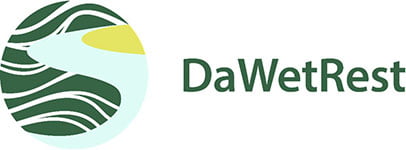
Danube Wetlands and flood plains Restoration through systemic, community-engaged and sustainable innovative actions (IA)
DaWetRest is built on the three demonstrator sites, located in Croatia-Middle Danube (Draž Municipality in Osijek-Baranja County), Bulgaria-Lower Danube (Kalimok-Brashlen area), and Romania-Danube Delta (Danube Delta Ramsar area), where active and passive restoration measures will be piloted and demonstrated along the Danube. In addition, DaWetRest has many sibling locations at tributaries of the Danube that receive recommendations, strategies, and action plans for replication. The main activities of DaWetRest include hydrotechnical works to remove natural barriers in lateral canals, development of intelligent freshwater monitoring system, improvement of ecological conditions in surrounding wetlands, establishment of a green hatchery to repopulate fish in hydro-ecosystems and to increase waterfowl biodiversity, implementation of a Recirculating Aquaculture System (RAS) in the context of wetlands restoration, development and implementation of an improved carbon sequestration methodology, as well as development for business plans based on wetland potentials. The common goal of all mentioned activities is to demonstrate restoration measures in small-size geographic areas and to recommend new actions needed for the improvement of Danube Region wetlands, floodplain, coastal wetlands, and salt marshes. All activities imply holistic and interdisciplinary approach, as well as engagement of local communities and citizens.
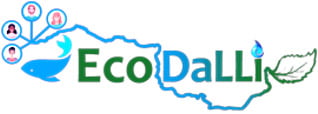
ECOsystem-based governance with DAnube lighthouse Living Lab for sustainable Innovation processes (CSA)
EcoDaLLi is the CSA of the Danube & Black Sea Lighthouse. It centralises governance structures and innovative solutions for the ecological restoration, protection and preservation of the Danube.

Innovative Solutions for Plastic Free European Rivers (IA)
INSPIRE's main objective is to contribute to the drastic reduction of litter, macro and microplastics in European rivers in a holistic approach, by bringing together 20 technologies and actions for: DETECTION of the pollution present in the river and at the riverbank, COLLECTION of litter and macroplastics at the river bank and litter, macro and microplastics in the river, PREVENTION of litter, macro and microplastics to enter the river by collecting it from its waste stream before it can enter the river and by developing biodegradable alternatives for currently non-degradable polluting products, to avoid they will further be used and arrive in the river as litter. Eight use cases (6 demo river sites and 2 prevention sites) are defined in INSPIRE to install and test the technologies and actions, to model the processes related to the water purification activities, to obtain well defined solutions at detection, collection or prevention level and combinations thereof. The technical feasibility is backboned by a techno-economical analysis with the development of business cases for the solutions, action plans towards upscaling and replication and together with mapping and modelling all elements are brought together to develop a Master Plan for tackling the challenges of the mission and contributing to the objectives of the mission. A dissemination and communication plan and strategy for community engagement will be developed to increase the project visibility. Apart from the general dissemination and communication tools and activities, specific activities will be setup on festivals, promoting 100% biodegradable products as a result of INSPIRE. INSPIRE's consortium is composed of 26 partners with complementary expertise and a good balance of academia, industry, communication specialists and soft skills organisations is obtained, who all together will work towards the target of having a number of successful solutions that can find their way to the market and put INSPIRE on the radar.
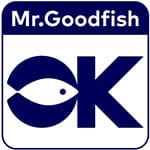
Mr.Goodfish3.0: Co-creating Solutions for Sustainable Seafood Consumption (CSA)
Overfishing and unsustainable seafood consumption threaten marine ecosystems and biodiversity. Many consumers lack the knowledge to choose seafood that supports sustainable practices. Additionally, socio-cultural and economic factors further complicate efforts to promote responsible consumption. The need for an accessible solution is urgent. With this in mind, the EU-funded Mr.Goodfish3.0 will upgrade an existing app developed with input from the seafood value chain. To promote sustainable seafood consumption, this app will be part of an EU-wide campaign offering personalised decision trees, health benefits, food waste tips, recipes, and good practices. Co-created with stakeholders, the campaign aims to engage the public through social media, educational activities, and collaborations with European initiatives like #TasteTheOcean.

New Approach to Underwater Technologies for Innovative, Low-cost Ocean obServation (IA)
NAUTILOS, a Horizon 2020 Innovation Action project funded under EU’s the Future of Seas and Oceans Flagship Initiative, aims to fill in marine observation and modelling gaps for biogeochemical, biological and deep ocean physics essential ocean variables and micro-/nano-plastics, by developing a new generation of cost-effective sensors and samplers, their integration within observing platforms and deployment in large-scale demonstrations in European seas. The principles underlying NAUTILOS are those of the development, integration, validation and demonstration of new cutting-edge technologies with regards to sensors, interoperability and embedding skills. The development is always guided by the objectives of scalability, modularity, cost-effectiveness, and open-source availability of software products produced. Bringing together 21 entities from 11 European countries with multidisciplinary expertise, NAUTILOS has the fundamental aim to complement and expand current European observation tools and services, to obtain a collection of data at a much higher spatial resolution, temporal regularity and length than currently available at the European scale, and to further enable and democratize the monitoring of the marine environment to both traditional and non-traditional data users.
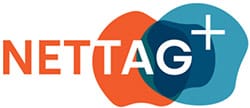
Preventing, Avoiding and Mitigating Environmental Impacts of Fishing Gears and Associated Marine Litter (IA)
NETTAG+ aims to provide a portfolio of three suitable innovative smart and sustainable solutions to address the negative impacts of fishing gears on marine life and habitats, in line with the second issue of the call “Environmental impacts of fishing gears”. NETTAG+ will be based on synergistic activities between the fisheries industry, scientists and NGOs to develop three solutions to PREVENT, AVOID and MITIGATE the harmful impacts of fishing gears. We will PREVENT marine litter derived from fisheries activities, AVOID loss of fishing gears, and MITIGATE harmful impact by removing existing ALDFG. These three solutions will jointly contribute to reduce ALDFG and marine pollution, namely by: reducing the introduction of hazardous chemicals and microplastics originated from ALDFG; reducing ghost fishing, bycatch and entanglements of sensitive or endangered species on ALDFG; and improving mapping, tracking and recovery technologies to retrieve ALDFG. NETTAG+ aims to upgrade and upscale the integrative preventive approach started in the previous NetTag project, and replicate it in Mediterranean regions. The three solutions will be developed to maturity (TRL 7-8) by the end of the project, and will be tested, validated and demonstrated in real conditions in Atlantic and Mediterranean countries, namely Portugal (PT), United Kingdom (UK), Spain (SP), Italy (IT), Croatia (HR) and Malta (MT). NETTAG+ ambition is to change the paradigm of the fisheries industry, aspiring to transform the societal perspectives about the role of fishers as Guardians and Cleaners of the Ocean. NETTAG+ will empower the sector to take active actions to address marine pollution, promoting their role as key-actors to tackle marine pollution, and will will provide the fisheries industry with three smart and environmentally-friendly solutions to reduce ALDFG and prevent the environmental impacts of fishing gears.

OCEAN CITIZEN is implementing a replicable protocol for marine restoration that blends habitat restoration, carbon immobilization evaluation, and social participation, contributing to economic growth in local communities. Bringing together 22 partners from 9 countries across Europe and the Middle East, the project adopts a novel approach by testing cutting-edge restoration tools across five pilot sites, including 3D-printed artificial reefs, floating reefs and Integrated multi-trophic aquaculture.

Social Transformation for Water Stewardship through Scaling Up Citizen Science (CSA)
The OTTERS Project aims to promote societal transformation for marine and freshwater stewardship through scaling up citizen science. OTTERS will support the coordination of EU citizen science initiatives focused on marine and freshwater, aiming to: 1) Accelerate the creation and adoption of technical, legal, and ethical standards for citizen science protocols and methods.2) Examine the effectiveness of citizen science in societal transformation towards sustainable aquatic ecosystem stewardship.3) Pilot cross-community, watershed-based Spring-to-Sea Stewardship Campaigns.

Participatory Art For Society Engagement with Ocean and Water (CSA)
PartArt4OW unites art, science, and civic engagement to tackle pressing ocean and water challenges across Europe. PartArt4OW focuses on participatory art and creative processes in the belief that participation can lead to a deeper engagement of people with the ocean and water health issue through the performing arts themselves. PartArt4OW mobilizes artists, citizens, and other stakeholders in the implementation of 19 participatory art initiatives (PAIs). Supported by funding, mentorship, and networking opportunities, these initiatives showcase their work through public festivals, while our Sailing Lab travels to connect communities to these projects, fostering discovery and dialogue on ocean health. A toolkit will collect best practices and guidance for those wanting to replicate these participatory initiatives, enabling other organizations and policy makers to address water-related issues creatively. Additionally, our ecosystem-building activities bring together diverse stakeholders and creatives, creating a strong, collaborative network dedicated to protecting our waters for generations to come.
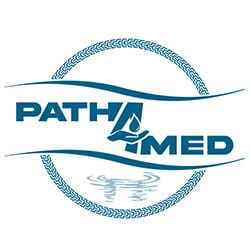
Demostrating Innovative Pathways Addressing Water Pollution in the Mediterranean Agro Hydro System (RIA)
Water and soil nutrient pollution in the Mediterranean basin poses a grave threat to both ecosystems and human health. Intensive agricultural practices, coupled with inadequate waste management, have led to severe pollution of vital resources. This endangers biodiversity, disrupts food chains, and compromises the quality of drinking water. Addressing this crisis requires innovative and sustainable solutions. The EU-funded Path4Med project aims to tackle these issues by focusing on creating pathways to improve soil health and eliminate water and soil pollution through advanced agricultural management and new monitoring technologies. Path4Med will implement solutions at large-scale demonstration sites and use a digital platform for data exchange and public engagement. Ultimately, the project seeks to ensure a sustainable future for the Mediterranean Sea.
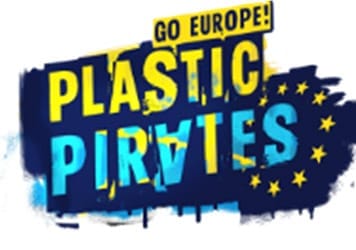
Plastic Pirates – Go Europe! initiative (CSA)
Ocean plastic pollution has become a major challenge for marine life and ecosystem. To tackle this problem, a better understanding of the pathways of plastic litter is urgently needed. This is where the Plastic Pirates come in: The Plastic Pirates – Go Europe! initiative investigates plastic waste pollution in European rivers, coasts, oceans, and seas. Using a large-scale citizen science approach, young people gather research data that is being analysed by scientists and researchers. Young people interested in science and the environment are given the opportunity to play a hands-on role in research. They decide which river, coast or sea to investigate for plastic pollution. They take the samples, measure, collect and enter the data gathered into a database. This way, they become an integral part of scientific research and gain knowledge on litter pollution of their local streams, rivers, and coastlines. Plastic Pirates samplings take place in spring and autumn. Videos, booklets and teaching material explain how a sampling works in detail. Each step is an important building block for the scientific study and ensures that the data gathered is reliable and usable. First developed in Germany in 2016, the Plastic Pirates initiative is currently under way in 13 European countries: Austria, Belgium, Bulgaria, France, Germany, Greece, Hungary, Italy, Latvia, Lithuania, Portugal, Slovenia, and Spain. Thus, Plastic Pirates samplings take place in rivers, coasts, oceans, and seas all across Europe in a harmonised and standardised manner.

PREP4BLUE: Preparing the Research & Innovation Core for Mission Ocean, Seas & Waters (CSA)
PREP4BLUE’s objective is to support the R&I goals of the ‘Mission: Restore our Ocean & Waters’ and facilitate its successful implementation, especially during this first phase (2022-2025). Through a series of pilots at the Mission’s demonstrator or ‘Lighthouse’ sites, PREP4BLUE will develop tools, guidelines and methodologies to be used by stakeholders on all Mission funded projects. This co-creation approach will optimise and create synthesis across Mission activities and solutions, ensuring cohesion and connectivity across sectors, and between European citizens and stakeholders.
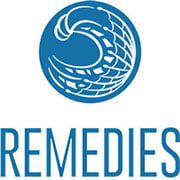
Co-creating strong uptake of REMEDIES for the future of our oceans through deploying plastic litter valorisation and prevention pathways (IA)
The REMEDIES project focuses on three key pillars: monitoring and detection of plastic litter, collection and valorization, prevention and zero waste solutions. Aligning with allies, we address plastic pollution's impact on marine ecosystems. Our project tests four innovations per pillar across 8 demonstration sites in the Mediterranean and expands to 33 more locations. A significant part of the project is community building, involving stakeholders and turning those affected by plastic pollution into actors for a healthier ocean. We aim to create a plastic-conscious society, realizing 115 beach cleanups and engaging 2K citizens to collect more than 20t of plastic (#20tonneschallenge). With REMEDIES, we have launched two open calls for Associate Regions with financial support of 500K. Overall, we aim to map 170 km², engage 100,000 citizens, and reach more than 1 million people, collect 400 tons of plastic, and prevent 3,700 tons of plastic waste from entering marine environments.

Restoring wetlands for a sustainable future (IA)
Restore4Life showcases the remarkable socio-economic benefits derived from a comprehensive and interdisciplinary approach to restoring freshwater and coastal wetlands in the Danube basin. By creating new blue-green infrastructure that bolsters regional climate change resilience and mitigation efforts, Restore4Life paves the way for a sustainable future.
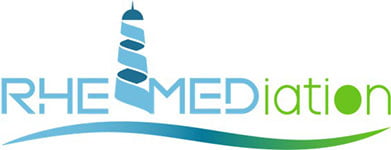
Responsive hub for long term governance to destress the Mediterranean Sea from chemical pollution (IA)
RHE-MEDiation aims to establish a responsive governance hub to reduce chemical pollution in the Mediterranean Sea, targeting critical hotspots. The initiative is focused on testing and validating a remediation technology using micro-algae solutions, which will be integrated into existing water and wastewater treatment systems to improve the removal of heavy metals, pesticides, and PFAS (forever chemicals). Additionally, mobile and fixed sensing systems will be deployed to detect and quantify these pollutants in both terrestrial and marine environments, with data being contributed to the European Commission EMODnet platform to enhance the Digital Twin of the Ocean. Demonstration sites in Italy, Greece, and Turkey will lead the initiative, with plans to expand to five additional replication sites, empowering local stakeholders to drive this transformative effort.
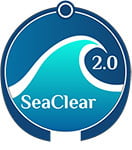
Scalable Full-cycle Marine Litter Remediation in the Mediterranean: Robotic and Participatory Solutions (RIA)
SeaClear2.0 supports the achievement of the EU Mission “Restore our Oceans and Waters” by preventing and eliminating seabed and floating marine pollution. This is achieved through a combination of technological innovation, stakeholder engagement, citizen activation, and contribution to policy-making. SeaClear2.0 aims to prevent and reduce marine litter pollution, particularly plastics and microplastics, in the Mediterranean through (i) Community activation, (ii) Scaling up and demonstrating an innovative solution with teams of autonomous, intelligent robots for effective monitoring and collection of marine seafloor and surface litter, (iii) Providing solutions for valorization of the collected litter, (iv) Adding novel dimensions in policy making, and (v) Accelerating the uptake of our solution by demonstrating its scalability and replicability to the Mediterranean basin and beyond.

Strategies of circular Economy and Advanced bio-based solutions to keep our Lands and seas alIVE from plastics contamination (IA)
SEALIVE (Strategies of circular Economy and Advanced bio-based solutions to keep our Lands and seas alIVE from plastics contamination) is a European innovation project, funded through Horizon 2020, that will bring advanced bio-based plastic solutions to the market, providing viable alternatives to single-use plastics. SEALIVE will reduce plastic waste and contamination on land and in seas by boosting the use of biomaterials and contributing to the circular economy with cohesive bio-plastic strategies.

Innovative solutions to prevent, reduce and remediate nutrient pollution along the land-river-sea system in the Mediterranean basin (IA)
Nutrient pollution resulting from intensive agricultural practices and inadequate wastewater treatment is severely impacting water quality, soil health, and biodiversity across the Mediterranean Sea basin. The SEACURE project aims to address this pressing issue through a holistic, land-river-sea approach aimed at the systemic prevention, reduction, and remediation of nutrient pollution in the Mediterranean. The project will focus on six regions in Spain, Italy, and Greece to demonstrate and validate innovative solutions for sustainable land practices, enhanced wastewater treatment, and nature restoration, while also acting on governance levers to scale up effective strategies at the regional level and replicate them across the Mediterranean and other affected European basins.

Circular Solutions for Fishing Gears (RIA)
SEARCULAR is a research and innovation project, working to reduce marine litter and microplastic generated by fishing gear. Working directly with the fishing industry to develop, test and refine four circular solutions to plastic waste, SEARCULAR is helping to support sustainable livelihoods and healthy marine ecosystems. The four solutions are: 1. Creating dolly ropes from recycled purse seine nets 2. Developing demersal seine rope coating from biodegradable polymers 3. Trialling an eco jellyFAD made from natural and biodegradable materials 4. Development of a port-based approach for collection, sorting and conditioning of end-of-life fishing gear. Together, these holistic approaches can give gear a new lease of life and enhance sustainability in the fishing industry.

Innovative sediment management framework for a SUstainNable DANube black SEa system (CSA)
The Danube River has played a vital role in supporting both human and animal life for centuries. Since the late 19th century, human interventions have significantly altered the natural flow of the river to optimize its utility. These interventions have included actions such as straightening the riverbed, constructing hydropower plants, collecting freshwater, establishing nuclear power plants, engaging in agriculture, and facilitating navigation. The combined effects of climate change and extensive river regulation have led to a significant disruption in the natural balance of sediment in the Danube River, increasing flood risks, altering hydropower production, decreasing navigability of the river, and affecting in biodiversity within the Danube Basin. SUNDANSE will:
- carry out a conceptual Driver- Pressure-State-Impact-Response with multiple levels of analysis (catchment level, water body level, etc.) to understand and address environmental issues of the uniqueness of Danube river lighthouse.
- Realize maps for observation of critical points for excessive sedimentation and/or excessive erosion, sediment transport and flow restoration.
- Perform innovative actions of measurements using cutting-edge portable on-vessel equipment prototypes for the direct analysis of microplastics and toxicity.
- Achieve an advance numerical prediction model of sediment transport process in the Danube River basin, to have a comprehensive overview of river dynamics.
- Develop an Innovative Sediment Management Framework for enhanced and sustainable sediment management within the Danube River basin.
- Produce an Action plan and Roadmap for associated regions to upscale demonstrated sustainable and effective solutions for sediment management.
- Fulfil interconnections synergies with DanubeSediment and SIMONA projects and ICDPR initiatives.
- Improve the transnational and cross-sectorial cooperation, contributing to a better governance in region and to implementation of EU strategies.
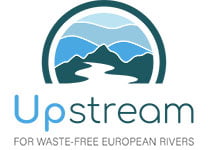
Circular and Bio-Based Solutions for the Ultimate Prevention of Plastics in Rivers Integrated with Elimination And Monitoring Technologies (IA)
UPSTREAM addresses the targets of the Mission by overcoming challenges related to the monitoring, prevention, elimination, and valorisation of litter (L), plastics (P), and microplastics (MP). Demonstrating a suite of 14 solutions addressing pollution at every step in the water system, connected to 7 rivers in 5 countries, will enable the co-creation of an extensive database of knowledge and sustainable business models with a focus on making information as widely accessible as possible. The involvement of wastewater treatment plant (WWTP) owners, industrial partners with existing supply chains, innovative SMEs, and a water cluster association will ensure exploitation of the project solutions, while €500k in cascade funding will enhance replication across Europe. The UPSTREAM consortium will thus establish circular value chains with the potential to decrease plastic litter by 50% and MP pollution by 30%. The advances in UPSTREAM are based on best-in-world innovations, including: • Standardised, rapid monitoring techniques able to detect MP down to sizes >25 μm • Bio-based, biodegradable plastics the stop the formation of MP in consumer products and WWTPs themselves • Elimination of more than 90% MP within WWTPs from both sludge and effluent streams • Innovative floating platforms capable of removing >83% of L, P, and MP directly from rivers at both the surface and riverbed, without creating noise pollution or harming ecosystems • Production of relevant monomers from recovered plastics through both advanced fractionation and depolymerisation and biotransformation. UPSTREAM represents a pan-European consortium with 5 demo sites across Europe, including 4 WWTPs (UK, ES, DE, IT), plus a testing area on the Danube in Serbia. The consortium is strengthened by top European RTOs, the world leader in sustainable bioplastics development, Novamont, and completed by partners dedicated to creating a digital knowledge sharing platform and engaging with citizens and stakeholders.

